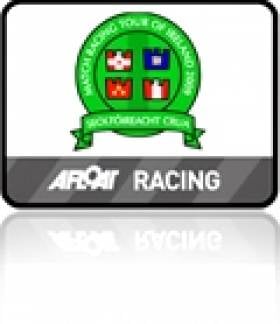Displaying items by tag: Vidcasts
Sheehy Retains Match Race Title
Dun Laoghiare's John Sheehy retained his National Match Racing Championship title in Kinsale yesterday. The top three teams were: Jodapama Racing (John Sheehy) 2: Mad Match Racing (Ben Duncan) and 3rd: Gladiators (Sam Hunt). Vidcasts with the winners below:
Jodapama Racing have retained their Irish match racing title but had to do it the hard way. Lieing in 4th place over night the pressure was on to make the final and was made worse when they lost the openning race of the second day to Ban Duncan and MadMatch Racing.
After that openning loss John Sheehy, Darragh O'Connor, Paddy Kirwin and Marty O'Leary sailed away from the start area to regroup and came back firing, finishing on 8 wins. Mean while MadMatch kept on racking up points, their final tally topping the table at the end of the round robbin with 9 wins. Prof O'Connell (North Sails Ireland) and Sam Hunt (Gladiators) lead going into day 2 and despite mixed fortunes on day 2 held on to finish on 7 wins a piece to contest the 3rd/4th place play off.
In the 2-0 final Jodapama held pressure off the start in both races to take an early initial lead which they defended to the line despite being put under pressure all the way by MadMatch. 3rd place went to the Gladiators in a nip and tuck 2-1 play-off.
The win also secures Jodapama the Tour title for the second year finishing on 48 points. MadMatch Racing do enough to take 2nd on 29 point with Team Lazarus holding on to 3rd on 26. Gladiators and North Sails Ireland tie on 18 points, with the win in the final race of the play-off giving the Gladiators 4th place on the Tour standings.






























































